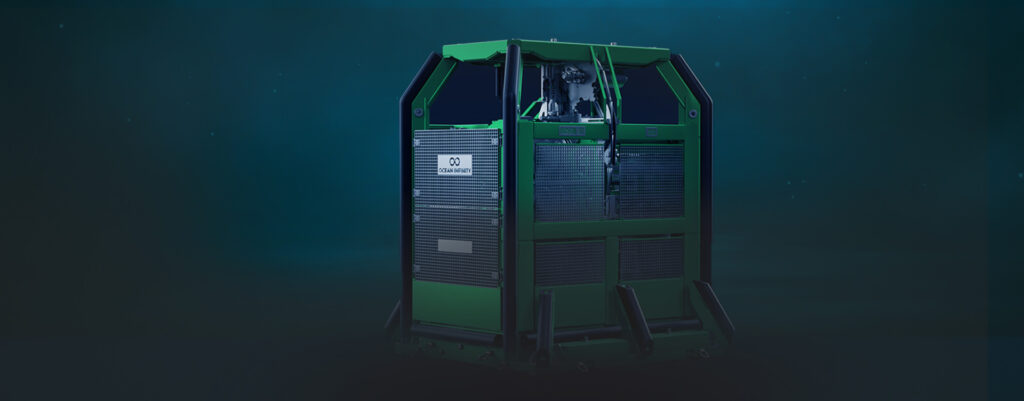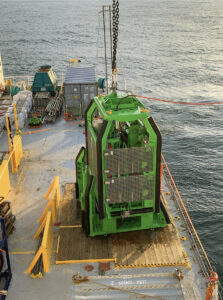
Pioneering exploratory geotechnical surveys for the construction of offshore wind farm Ossian have recently been completed, with involvement from Ocean Infinity’s newly developed device, the ‘Infinity CPT 250’. The Ossian wind farm is a joint venture between SSE Renewables, Marubeni and Copenhagen Infrastructure Partners (CIP); it will cover 858km2 of seabed, off the east coast of Scotland and will have the potential to produce up to 3.6 gigawatts (GW) of energy, enough to power up to six million homes. Once completed, Ossian will be one of the largest floating offshore wind farms in the world.
Since spring of this year, we’ve supported with the detailed geotechnical surveys to assess the engineering properties of the seabed across the expansive site. Our scope included:
- 90 seabed cone penetration tests (CPT)
- 45 seabed seismic cone penetration tests
- 20 vibrocores
Deep push seabed CPTs were carried out remotely in a significant industry first operation of its kind. ‘Over-the-horizon’ commands were sent via a remote-control system, which directed the successful operations of the Infinity CPT 250. This milestone represents a huge step towards remote geotechnical operations, and our goal of evolving offshore operations towards a safer and greener maritime future, which underpins our wider mission at Ocean Infinity.
Our expansion into geotechnical work and more specifically the project to get our Infinity CPT 250 commissioned and commercialised began a little over a year ago. In a short period of time our inhouse team of geotechnical engineers worked alongside manufacturers to bring our vision, which at that point only existed on paper, to reality.
Following a period of commissioning and successful data quality testing, we set to work for the Ossian group on what became the maiden project for the Infinity CPT 250. The project began well and the data quality was good.
As with anything that drives the forefront of transformation, and the general nature of a company like Ocean Infinity, this project was not without its challenges.
The operation of this equipment, particularly using ‘over-the-horizon’ commands on some of the pushes, was a first for all involved. Working with the Ossian group created the opportunity for us to test the capability of our technology, which will ultimately unlock more efficient operations supporting offshore wind farm infrastructure and design.
There were a huge number of lessons learnt, and as is the nature of this industry, there will continue to be; consistent evaluation and improvements are a huge part of working towards our overarching mission to create and use innovative technology.
Into next year we will begin integrating our geotechnical equipment onto our newly commissioned ‘Armada’ robotic lean-crewed ships to bring to the fore even more benefits of tech enabled operations.
